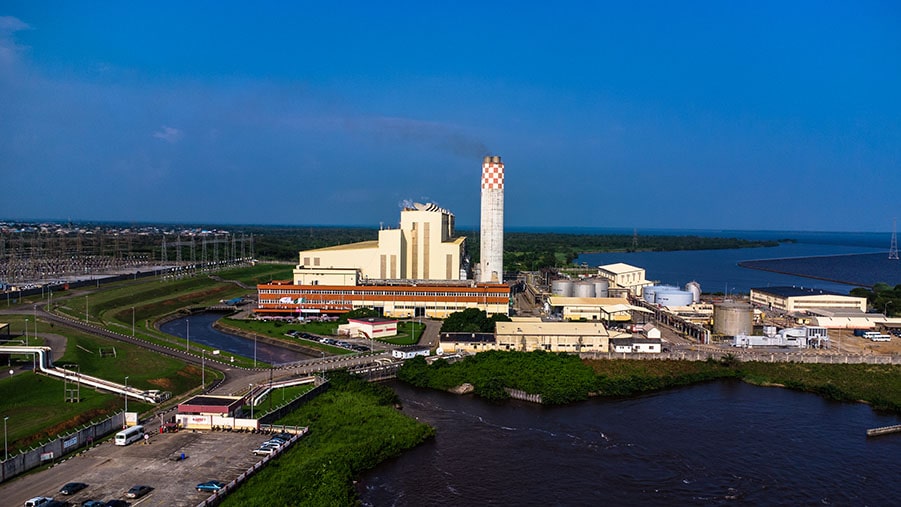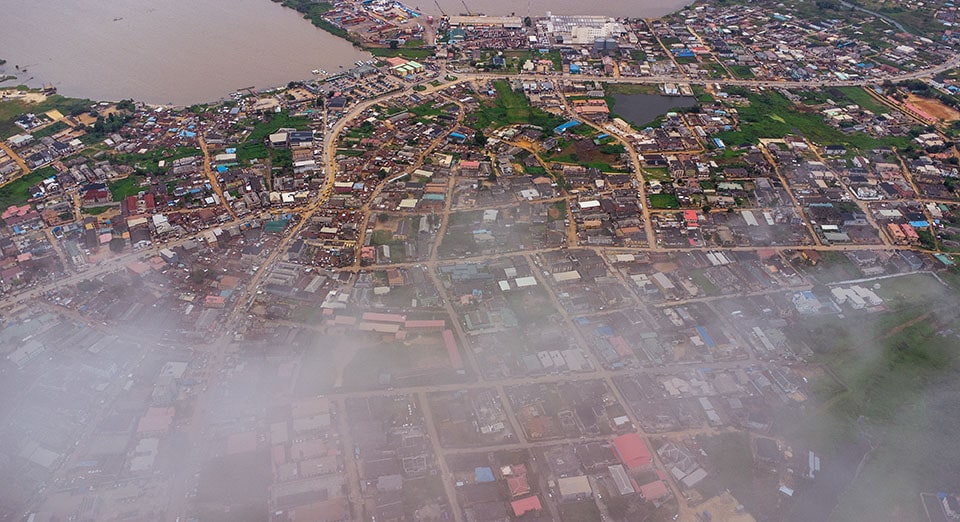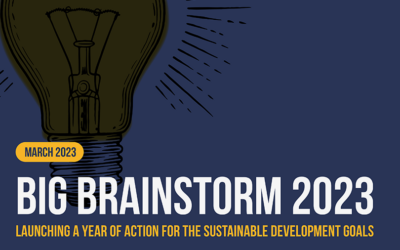Co-authors: Baliqees Salaudeen-Ibrahim, ‘Seyifunmi Adebote, Yazid Mikail, Lauritta Boniface, Lawrence Akpoterai
Dear President Bola Ahmed Tinubu,
Now is the time to show leadership on Climate Action in Nigeria.
We would like to take this moment to extend our heartfelt congratulations to you on your election as the President and Grand Commander-in-Chief of Africa’s most populous country – our dear nation. In the same breath, we congratulate you on your emergence as the 63rd Chairman of the Economic Community of West African States (ECOWAS) at such a daring time. We do hope that your leadership steers our dear nation and the region on its path to economic growth, political stability, sustainable development and a more habitable world.
Urged by a shared apprehension about the pressing trends of our changing climate and its consequences, we write to you as concerned youths, representative of Nigeria’s largest demography. Our environmental situation gets critical by the day, we face severe threats and the future is not secured, we therefore call on your leadership to prioritize urgent climate action for a sustainable future.
The climate crisis
As you are very informed, the adverse effects of rising temperatures, extreme weather events, and the depletion of natural resources are increasingly evident across the globe. Prolonged droughts and changing rainfall patterns have intensified the water scarcity crisis in different regions, exacerbating conflicts over scarce resources; Lake Chad is an example. Many nomadic and agricultural communities have suffered severe losses, with implications on food security. Coastal areas have also been grappling with rising sea levels and increased storm surges, with more frequent and severe flooding that threatens lives and livelihoods. These impacts of climate change are a sobering reminder of the urgent need for collective action to foster resilience.
Failing to address these climate change impacts would have severe consequences. These include heightened malnutrition, starvation, and poverty due to disrupted agricultural production, exacerbated by prolonged droughts and forced migration in Northern Nigeria. Recurrent floods would result in damaged infrastructure, economic setbacks, and overwhelmed healthcare systems, while biodiversity loss might compromise essential services across sectors. Energy resources would be strained, social inequalities exacerbated, and migration trends intensified, potentially leading to conflicts and security challenges. Neglect and inaction at a time like this pose multidimensional risks that cut across economic, social, environmental, and security realms, underscoring the urgency of proactive measures to mitigate these effects in our dear nation.
In context: How Nigeria is affected today.
We urgently bring to your attention the recent floods that have impacted 33 states in Nigeria, causing devastating loss of life, community displacement, infrastructure damage, and disrupted livelihoods. Lagos battles coastal floods with severe infrastructural damage; Benue faces the river and flash floods with displacement and farm damage; Rivers State’s communities struggle to cope with recurrent floods and black soot; farmers in the northern part barely have products to harvest; these are a few of the numerous affected communities.
Agriculture, the backbone of our economy, is one sector that is severely threatened by climate change. Changing rainfall patterns, prolonged droughts, and increased frequency of extreme weather events are adversely affecting crop production, livestock health, and overall food security. Prolonged droughts, such as the one experienced in the northern regions in recent years, have led to significant decreases in crop yields and livestock productivity, affecting farmers’ incomes and food availability.
Droughts have become an enduring reality in the country, projected to persist particularly in Northern Nigeria. This phenomenon triggers forced migration and displacement, amplifying vulnerabilities and potentially straining national security.
Other impacts of the climate crisis currently experienced in the country include sea level rise, loss of biodiversity, ecosystem depletion, etc. These events underscore the imperative for a leadership that is mindful of addressing climate change, and an immediate response co-created to bring practicable solutions.

Leaning on progress made in the past
Over two decades ago, long before climate change became as topical as it is today, as the then Governor of Lagos State, your vision and commitment to addressing environmental crises were clear and resounding. Now that climate change is not just topical but indeed one of the most pressing issues of our time, now is the time to show true leadership on climate action and in your capacity as the President re-envision a climate-resilient Nigeria.
Previous Nigerian government has taken certain steps to address climate change and its impacts through a range of initiatives. Notably, the National Climate Change Policy and Response Strategy, the Nigeria Climate Change Act, etc., provide a comprehensive and legal framework for adaptation and mitigation efforts. These efforts align with Nigeria’s participation in international agreements like the Paris Agreement, underlining our commitment to emissions reduction and climate resilience. The Nigerian government also channels some efforts to disaster management for climate-related hazards. Nevertheless, we must note that sustaining these efforts and fostering cross-sector collaboration remains pivotal in effectively addressing the complex challenges posed by climate change in Nigeria. While many of these initiatives exist, many are underperforming, and in other cases, negligence and inaction have taken precedence.
Our plea: Leadership and youth involvement
A lot rises and falls on the shoulders of leaders and this is the same in the context of prioritizing Nigeria’s environment. We believe that there is an opportunity to bring fresh perspectives and drive meaningful change in addressing environmental challenges in Nigeria while also strengthening collaborative efforts across other Ministries and Bodies. In addition, we suggest establishing a Youth Advisory Council on Environment and Climate Change, as this will provide a platform for youth voices to be heard and also contribute to policy decisions. The leadership and collaboration of the Minister and Special Adviser with the young people in Nigeria and other stakeholders will play a pivotal role in shaping a greener, more resilient future for the nation.
We, therefore, call for heightened climate action across the country. We ask that your leadership ensure that young people are part of efforts to strengthen climate policy implementation, boost renewable energy initiatives, protect our forests, expand and implement disaster readiness and management strategies, and transparently manage green investments. Unite government departments, increase funding, and bolster climate change education, as this will enable us to forge a resilient path forward. We ask that you reemphasize your commitment, reinforcing these initiatives urgently to secure a sustainable and climate-resilient future for Nigeria.
Areas of urgent action and action plans:
1. Sustainable Agriculture: Support farmers in adopting climate-smart agricultural practices that enhance productivity while minimizing greenhouse gas emissions. Encourage the use of sustainable farming techniques, promote agroforestry, and invest in research and development for climate-resilient crops.
2. Renewable Energy Transition: Promote the widespread adoption of renewable energy sources such as solar, wind, and hydropower. Encourage investments in clean energy infrastructure, provide incentives for renewable energy projects, and develop policies that facilitate the integration of renewables into our national energy grid.
3. Forest Conservation: Implement effective measures to combat deforestation and promote forest conservation. Strengthen enforcement of laws against illegal logging and encroachment, establish protected areas, and support community-led initiatives for sustainable forest management.
4. Climate Resilience: Develop comprehensive strategies to enhance Nigeria’s resilience to climate change impacts. This includes investing in climate-proof infrastructure, implementing early warning systems for extreme weather events, and supporting vulnerable communities in adapting to changing climatic conditions.
5. Circular Economy: Enact robust policies, programs and initiatives to advance the circular economy. Encourage the design of products for longevity, easy repair, and recyclability while minimizing waste. Establish efficient recycling systems and promote collaborative efforts among industries, consumers, and policymakers to shift from a linear “take-make-dispose” model to a circular, sustainable approach. This will contribute to our Nationally Determined Contributions (NDCs).

6. Climate Education and Green Skills Acquisition: Incorporate climate change education and green skills acquisition into schools’ curricula to prepare the next generation for the challenges of a rapidly changing world. Design comprehensive programs for youth and women that teach environmental awareness and practical green skills, empower communities to contribute to sustainable practices, fostering a generation capable of tackling pressing environmental issues.
7. International Cooperation: Actively engage in international climate negotiations and collaborations to ensure Nigeria’s interests and positions are represented on the global stage. Seek partnerships with other nations, international organizations, and private sector entities to access finances, technology transfer, and capacity-building support for climate action.
8. Climate Policy and Governance: Nigeria has operationalized policies like the Nigeria Climate Change Act, the Nigeria Energy Transition Plan, the National Drought and Desertification Policy, the National Forest Policy, National Erosion and Flood Control Policy, among others. However, there is a need to urgently review these policies to meet the current climate change reality in the country and facilitate their implementation. In addition, develop a robust monitoring, evaluation, report and learning (MERL) framework to ensure that these policies are effectively implemented and progress is tracked and reported.
Prioritizing these actions can position Nigeria as a regional leader in climate action and foster sustainable development that benefits both our environment and our people. Your leadership on this critical issue will not only inspire other nations but also secure a prosperous and resilient future for Nigeria.



